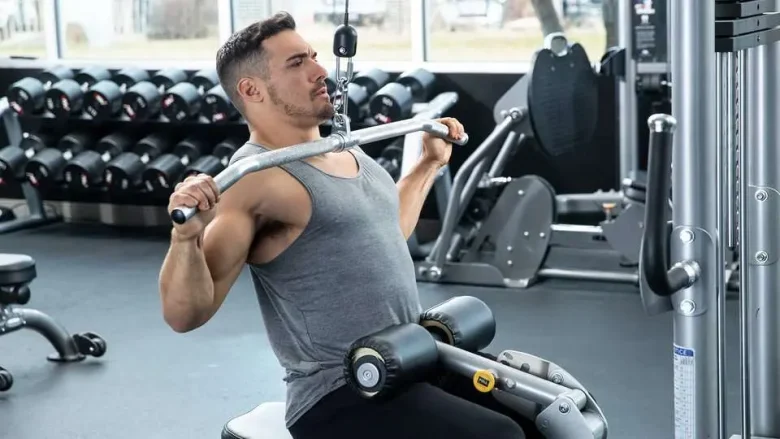It can be exciting to start your fitness journey, but you should do so at a pace that is manageable. Beginners often make the mistake of jumping into intense workouts immediately, which can lead to burnout and injuries. You need time for your body to adjust to new physical demands. Starting slowly allows you to build up strength in your muscles, joints, and overall stamina. Fitness is a marathon and not a sprint. By gradually introducing your new routine, you will set the foundation for success in the long term and reduce the risk of failure.
Basic Gym Equipment
It can be overwhelming to walk into a gym the first time. There are rows of equipment, including weights and machines that you may not know. Take some time to learn about the equipment available before you jump in. Cardio machines such as treadmills, stationary bicycles, and rowing machines are excellent for building up endurance or warming up. Weight machines are often labelled with instructions for beginners. Free weights, such as dumbbells, require more caution but are versatile in their use. Ask the gym staff for advice. They’re there to make you feel safe and confident as you begin.
A Full Body Workout Routine
Full-body exercises target all major muscle groups. This is perfect for beginners who want to achieve a balanced fitness and strength. Spend 5-10 minutes doing light cardio to warm up. Next, do basic strength exercises such as squats and push-ups. These exercises work multiple muscles and help build a strong foundation. As you begin, aim for one or even two sets of 10-12 repetitions per exercise. To improve flexibility and aid in recovery, finish your workout with a short cool-down and some stretching. This simple routine will prepare you for more advanced exercises in the future.
Focusing on Form and Technique
Beginners must execute exercises in the correct form. Correct technique maximises your workout’s effectiveness and minimises injury risk. When performing a squat, for example, make sure your back is straight, your knees do not go beyond your toes, and that you engage your core. Repeatedly performing exercises incorrectly can lead to strains and imbalances, which will make it difficult to reach your goals. Hire a trainer to guide you through your first sessions, or watch instructional videos by credible sources.
Consistency and Progressive Overload
It’s important that you gradually increase the difficulty of a workout once your body has adapted to it. This is done through progressive overload. It could be adding weight, increasing repetitions, or improving intensity. If you are comfortable lifting a dumbbell of 10 pounds, move up to 12 after a couple of weeks. The gradual overload prevents plateaus and encourages continual improvement. Consistency is also important. Regular exercise is key to creating habits that will lead to success in the long term. Progress takes time. Consistently showing up will produce better results than sudden bursts.
Nutrition and Recovery for Beginners
It is just as important to fuel your body correctly as it is to follow a good workout regimen. A balanced diet should include enough protein to promote muscle growth, healthy fats to provide energy, and carbohydrates to aid in recovery. Make sure to drink enough water during and after workouts. It is also important to give your body the rest it needs. Rest days are important for your muscles to grow and repair. Stretching, foam rolling, or yoga are all part of a recovery routine.
Listening to your Body and Avoiding Injuries
Listening to your body is one of the best lessons you can learn about fitness. While some muscle pain is normal when you first start, sharp or persistent pain shouldn’t be ignored. Overtraining and pushing through discomfort may lead to injury that can derail your progress. Rest days are important. Don’t hesitate to modify a workout when something doesn’t seem right. Fitness is not meant to hinder your life but rather improve it. Prioritise your health above all.
Setting Realistic Goals and Staying Motivated
For beginners, setting realistic goals is essential. Instead of focusing on drastic weight loss or unrealistic gains in strength, set goals such as improving endurance, mastering an exercise, or consistently showing up at the gym. Celebrate your small victories along the way. They’re a sign that you’re on the right track. Finding what you like is a great way to stay motivated, whether that’s outdoor activities, group fitness sessions, or solo gym sessions. To keep yourself motivated and accountable, surround yourself with supportive people, such as friends, family, or online fitness groups.
Build a Sustainable Fitness Journey
When you start your fitness program as a novice, it can be intimidating but rewarding if done correctly. You can build a healthy habit by approaching your training with patience, curiosity, and dedication. Remember that everyone’s progress is different, so focus on small, consistent, but constant steps, rather than perfectionism. Trust the process and enjoy your journey.
FAQs
1. What is the recommended number of days per week for a beginner to work out?
Three to four sessions per week is ideal to build consistency and allow recovery time between sessions.
2. What is the best warm-up for beginners?
Ideal is a 5-10 minute light cardio session, such as walking or cycling. This can be combined with dynamic stretching to engage your muscles.
3. How soon will you see results?
You may feel more energetic and stronger within a couple of weeks. With consistent effort, visible changes can take up to 6-8 weeks.
4. Should beginners use machines or free weights for their first workout?
Free weights can be used as you gain more experience. They are also more versatile and easier for beginners to use.
5. Can I work out if I feel sore?
Mild soreness can be tolerated, but if it is intense or sharp, you should rest your body to avoid injury.




